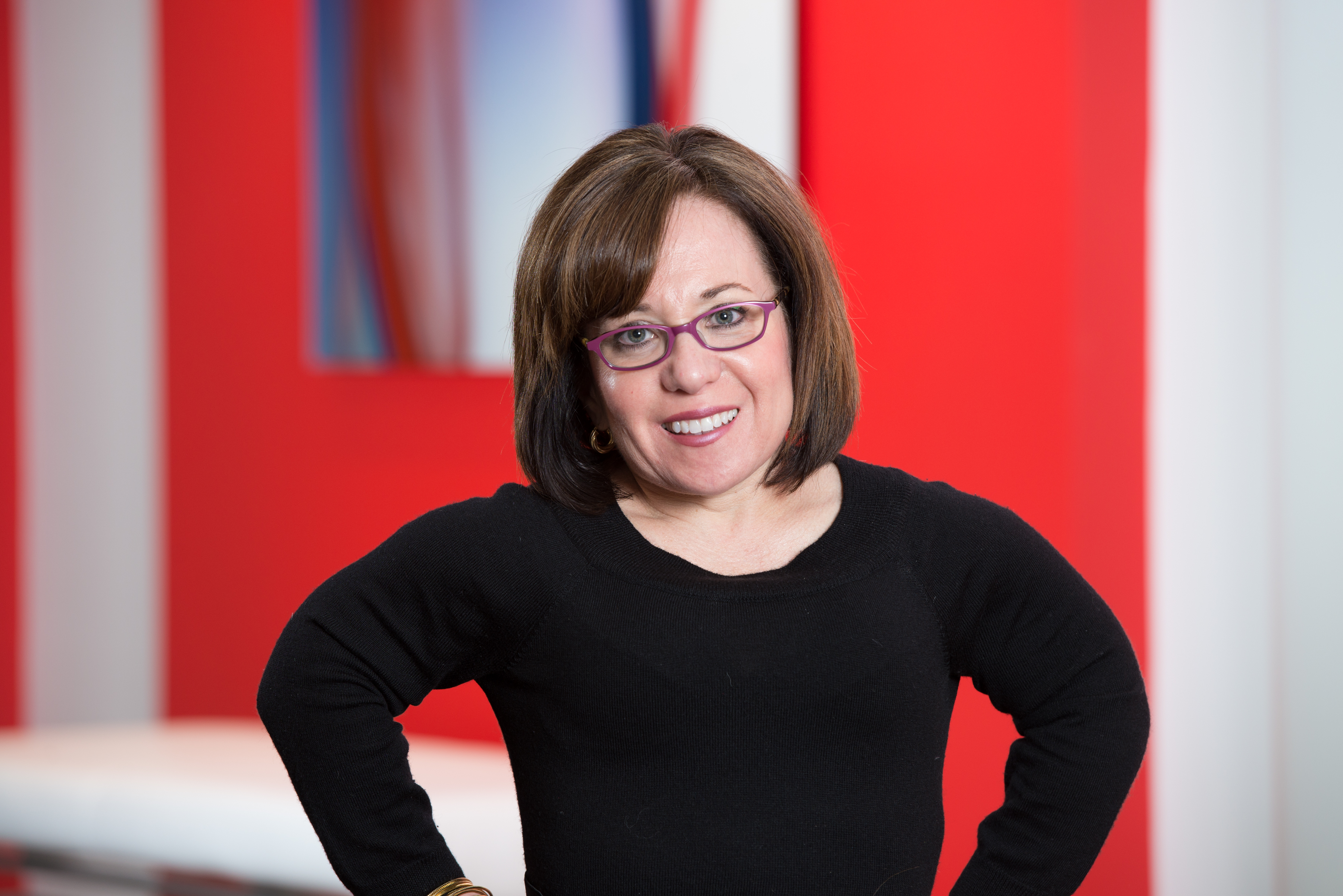Nov 12, 2019
‘People with disabilities tend to be natural innovators’
People with disabilities offer a font of untapped potential for the Massachusetts workplace, advocates and employers say, as state lawmakers explore ways to make employment more accessible.
"The easiest thing to do is when people see a wheelchair or a cane, for example, instead of thinking about all the ways this is going to be hard, they should look at all the skills that are there," said Hale Pulsifer, the customer accessibility lead at Fidelity's Office of Customer Accessibility. "People with disabilities tend to be natural innovators, coming up with hacks and creative solutions to problems on a regular basis. Who doesn't want innovation on their team? Companies really want this and I believe there's untapped potential here."
At the end of October, people with disabilities and experts in hiring testified at a State House hearing held by a subcommittee of the Joint Committee on Children, Families and Persons with Disabilities. That subcommittee, called WorkAbility, is planning to make recommendations by February 2020.
“New research reveals that companies who embrace best practices for employing and supporting people with disabilities in their workforce have outperformed their peers in the marketplace,” Laura Stout, director of contract operations at Blue Cross Blue Shield of Massachusetts and member of the Advisory Board of the Massachusetts Commission Against Discrimination, testified at the State House. “There is a tremendous opportunity for companies. The scope of the talent available, potential benefits and common misunderstandings about the cost versus the return on investment of disability inclusion are what’s being missed.”

A pipeline of potential
People with disabilities are routinely underemployed compared to people without disabilities, according to Kathleen Petkauskos of Work Without Limits, an initiative of Commonwealth Medicine, the consulting and operation services division of UMass Medical School. The most recent federal employment statistics show about 69% of people without disabilities participating in the labor force compared to 21% of people with disabilities.
Companies need to look at employees with disabilities in the same way as any other employees – as people with strengths and challenges that should be recognized and worked with, said Leslie O'Brien, the program manager at Massachusetts General Hospital’s Aspire Works, which finds internships for neurodiverse candidates from high school to graduate students.
One of her interns, O’Brien recalls, while in between assignments at his company, took a look at slides for a big project that 12 people had already reviewed. He immediately found 36 errors.
"He said he couldn't not see them," O'Brien said. "Think about the way a person is wired. An employee on the autism spectrum with this strength can really develop information in an area they're invested in. If you're capable of doing that in one area, you can do it in others. That's an incredible skill to have on a team."
The skills brought by disabled job applicants are often underestimated, said Richard Curtis, a consultant who previously worked on the diversity inclusion team at State Street.
"We've dealt with a lot of people coming in after graduation who have low vision,” said Curtis. “They've used public transit, lived in dorms, took notes. Who are we to say they can't navigate an office after going through all that?"
The benefits for the state, he said, are substantial.
"You may get people who have a disability off being dependent on or funded by the Commonwealth," he said. "And we are all in a competitive environment. Legislators are looking to brand the Commonwealth as a good place to do business in."
Inclusion is not only the right thing to do – it’s good for business, agreed Stephanie Browne, Blue Cross’ vice president for talent acquisition and chief diversity and inclusion officer.
“Whether a person has a visible disability or not, they are welcomed at Blue Cross,” she said. “Because our employees reflect the diversity of our members, we are able to ensure our products and services take into account everyone’s needs”.
Opportunities for employers
The state's employers are supportive of inclusion, according to the Associated Industries of Massachusetts trade group.
"Many AIM member companies already engage in this work and the Workability Hearing was a great chance to highlight those employers and workers," said Brooke Thomson, executive vice president for government affairs at the group. "The opportunity we have as a community of employers is to help AIM members access best practices and innovative ideas to create more employment opportunities throughout the Commonwealth."
The Boston area has several groups that work to link people with disabilities looking to work and employers who are prepared to bring them on, including Work Without Limits, which coordinates with about 45 companies, linking employers, individuals with disabilities and community-based organizations to each other and providing networking and training.
One of the biggest issues to overcome, advocates said, is reluctance to reach out to people with disabilities due to fears of inadvertently offending.
"Fear and misconception, fear of the unknown, not being sure of what the proper language is when engaging and speaking with people," Petkauskos said. "Employers don't want to say the wrong thing and offend someone, so they don't say anything at all. When employers feel more educated in those areas, that's a big barrier that can be removed."
Fidelity uses longstanding partnerships with Aspire Works, Perkins School For The Blind and the National Tech School for the Deaf to find candidates with skills that fit open jobs, and also works with its own managers to determine how inclusive and skilled they are at interviewing and working with employees with disabilities, Pulsifer said.
A broad evaluation of capabilities is key, he said.
“Strangers evaluating strangers based on a piece of paper is not a process that serves people with disabilities well,” Pulsifer said.
And it is important, Pulsifer added, for companies to keep abreast of how accommodations already exist for many disabilities, like sight readers and smartphone technology to assist blind or low-vision workers.
"There's a misconception that the accommodation is expensive. That's where education comes in," agreed Curtis, who touted the importance of partnerships with state organizations like the Massachusetts Commission for the Blind. "There's lots of creative ways of doing things."
“Companies can get creative, companies have to evolve," said Stout.
Stout, president of the Empowering Abilities employee resources group at Blue Cross, recognized as a "Best Place to Work" for disability inclusion by the Disability Equality Index, noted the aging population in the workplace includes people eager to continue working, but whose disabilities come over time, such as lost vision.
"They think they can't ever work again – they're really scared, they think 'I can't tell the boss I'm losing sight or hearing,'" she said. "They want to work.”
Looking ahead
An inclusive workplace is important for the next generation too, said Stout.
Stout, a little person who is the mother of a little person, received the Working Mothers of the Year award from the 2019 Working Mother 100 Best Companies and also has an advisory role on the Brandeis University National Research Center for Parents with Disabilities.
“As a mother with a disability and the parent of child with a disability, my passion is rooted in integration,” she told lawmakers, “where everyone regardless of their ability has the right to the same opportunities, services, community resources as all other Americans.”
PHOTO OF LAURA STOUT BY MICHAEL GRIMMETT

